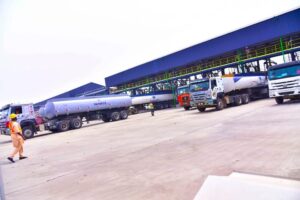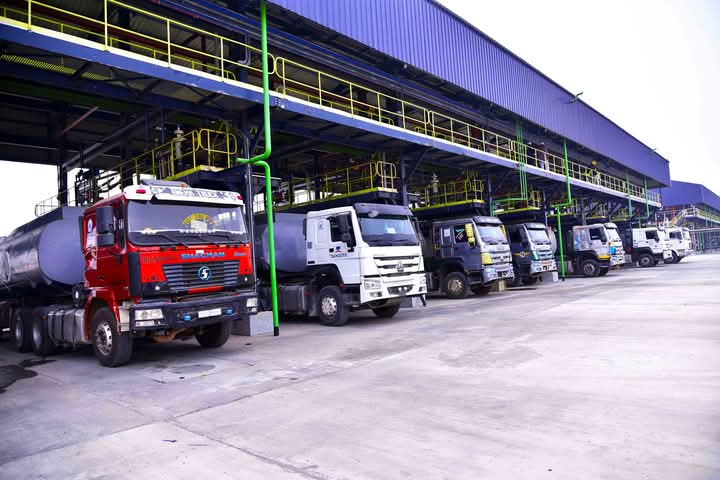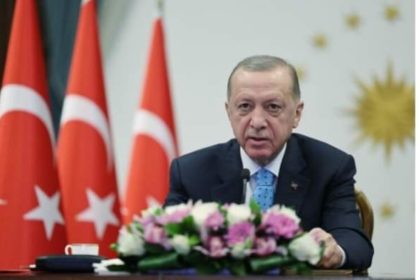
By Adeyemi Adekunle
The Dangote Petroleum Refinery has announced a reduction in the ex-depot price of Premium Motor Spirit (PMS), commonly known as petrol, by N65 per litre, bringing the price down from N890 to N825 per litre. This adjustment, which takes effect on Thursday, February 27, 2025, marks the second fuel price reduction by the refinery this month.
In a statement issued on Wednesday, the company said the move was aimed at providing economic relief to Nigerians as they prepare for the upcoming Ramadan season, while also supporting President Bola Ahmed Tinubu’s economic recovery policy.
This latest cut follows a previous N60 reduction earlier in February, demonstrating what the company calls a “commitment to easing the financial burden on Nigerians.” It also continues a trend of price reductions by the refinery, which had earlier slashed the price of petrol by N70.50 in December 2024, bringing it down from N970 to N899.50 per litre.
According to the refinery’s statement:
“Dangote Petroleum Refinery has consistently lowered the prices of petrol and other refined petroleum products to benefit Nigerians. This strategic adjustment is designed to provide essential relief in anticipation of Ramadan while also supporting the government’s economic recovery agenda.”
Despite the reduction at the depot level, actual pump prices at filling stations will still vary by region due to transportation and distribution costs. The statement outlined the expected retail prices at MRS Holdings stations, a key distribution partner:
– Lagos: N860 per litre
– South-West: N870 per litre
– North: N880 per litre
– South-South & South-East:N890 per litre
These figures indicate that while the ex-depot price has been reduced, regional variations will persist due to logistics costs.
The price reduction comes amid concerns over high fuel costs and inflation, which have placed immense strain on Nigerians since the removal of fuel subsidies in mid-2023. While Dangote Refinery’s efforts to lower prices have been welcomed, many analysts argue that the price of petrol remains out of reach for many Nigerians, particularly in rural areas.
Earlier this year, Dangote Refinery announced that it was supplying 60% of Nigeria’s petrol needs, reducing the country’s dependence on imported refined fuel. This has been seen as a crucial step towards achieving energy self-sufficiency and stabilizing fuel prices in the long term.
Many Nigerians have reacted to the price cut with mixed feelings. While some appreciate the effort, others argue that fuel prices are still too high given the country’s economic struggles.
A commuter in Lagos, Adekunle Olowokere, said, “Any reduction is welcome, but we need to see prices below N500 per litre for it to really impact the common man.”
Similarly, a trader in Kano, Hauwa Bello, noted that “Fuel is still expensive, and transportation costs are making food prices unbearable. The government must do more.”
Economists suggest that while Dangote’s price adjustments provide some relief, the broader challenge remains the high cost of living, fluctuating exchange rates, and inflation, which continue to erode purchasing power.
With Dangote Refinery increasing its share of local petrol supply, further price reductions could be possible in the coming months. However, factors such as global crude oil prices, refining capacity, and government policies will play a key role in determining future costs.
For now, as Nigerians prepare for Ramadan, the latest fuel price cut offers some relief, though many still await deeper reductions that will significantly ease economic hardships.




